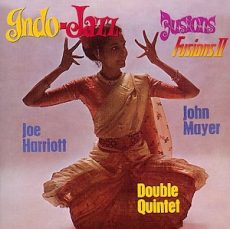
Daily Dose Of Jazz…
John Henry Basil Mayer was born on October 28, 1930 in Calcutta, Bengal, British India, to an Anglo-Indian father and Tamil mother. After studying with Phillipe Sandre in Calcutta and Melhi Mehta in Bombay, he won a scholarship to London’s Royal Academy of Music in 1952, where he studied composition with Matyas Seiber, as well as comparative music and religion in eastern and western cultures.
He worked for five years as a violinist with the London Philharmonic Orchestra beginning in 1953 and then with the Royal Philharmonic Orchestra from 1958 to 1965. During that period John was also composing fusions of Hindustani classical and Western classical forms fused with jazz undertones. His Violin Sonata was performed by Yehudi Menuhin and his Shanta Quintet was recorded by jazz sitarist Diwan Motihar and Denis Preston’s Lansdowne String Quartet in 1967.
In the 1960s he worked extensively with the Jamaican-born jazz musician Joe Harriott, with whom he formed the group Indo-Jazz Fusions. John also composed for film, and the BBC quiz show Ask the Family. From 1989 onwards he taught composition at Birmingham Conservatoire where he introduced the BMus Indian music course in 1997. He continued to compose concert works for chamber, solo and orchestral projects and record jazz-fusion albums.
Composer and sitarist John Mayer, known primarily for his fusions of jazz with Indian music, was fatally injured when hit by a motorist in North London and died on March 9, 2004.
More Posts: bandleader,composer,history,instrumental,jazz,music,sitar
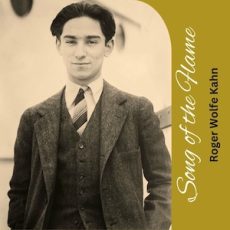
Daily Dose Of Jazz…
Roger Wolfe Kahn was born on October 19, 1907 in Morristown, New Jersey, into a wealthy German Jewish banking family. He began studying the violin aged six and is said to have learned to play eighteen musical instruments before starting to lead his own orchestra in 1923, at the age of only 16. His interest in music led the ten year old to buy a ukulele with instructions on how to play. The ukulele turned his mind toward violins, pianos, banjos and jazz orchestras.
By sixteen he rejected college, formed his own booking agency and organized a paying band. He installed it at the Knickerbocker Grill in New York. Self-taught, he could play every instrument in the outfit, and his favorite instruments were the piano and saxophone. By the time he reached nineteen, he had eleven orchestras on his books that played in resorts and hotels from Newport, Rhode Island to Florida. His success enabled him to pursue his passion for composing music and aviation.
Kahn appeared in a short film, hired many famous jazz musicians and singers of the day to play and sing in his band, especially during recording sessions. They were Tommy Dorsey, Morton Downey, Joe Venuti, Eddie Lang, Artie Shaw, Jack Teagarden, Red Nichols, Libby Holman, Gertrude Niesen, Franklyn Baur, Dick Robertson, Elmer Feldkamp and Gene Krupa.
Early on in his career he made several recordings under the name Roger Wolfe Kahn and His Hotel Biltmore Orchestra. He and his Orchestra recorded four takes of the song Rhythm Of The Day for Victor Records and for some reason Victor chose not to release any of them. Undeterred, he wrote the song Following You Around, and arranged the score of his stage musical Rhapsurdity and Hearts and Flowers.
During his career Roger made recordings for Victor, Brunswick and Colubia records, fronted several fashionable New York night clubs and owned several clubs, one beingLe Perroquet de Paris, opened in New York in November 1926 with a five-dollar cover charge. In 1938, the Kahn Orchestra reformed to perform a special one-off concert, in what could have been the Kahn Orchestra’s last concert.
Roger Wolfe Kahn, who was a composer, bandleader and an aviator, died of a heart attack in New York City on July 12, 1962.
More Posts: arranger,bandleader,composer,history,instrumental,jazz,music
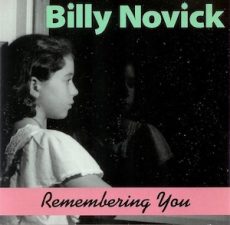
Daily Dose Of Jazz…
Billy Novick was born on Long Island, New York on October 12, 1951 and began playing clarinet at age eight. He picked up the saxophone at fifteen, and began playing club dates and concerts around the New York area. By 1973 he joined the David Bromberg band. After leaving the band, he started touring and making regional appearances as a sideman with a series of pop performers, including Leon Redbone, Jonathan Edwards, and Martha and the Vandellas.
While rehearsing for a dance performance in 1976, Novick was introduced to the innovative guitarist Guy Van Duser, and the two began a collaboration that continues to flourish. He joined the New Black Eagle Jazz Band, and continues to perform with them. He has appeared on more than thirty-five of the band’s recordings.
With jazz as his first love, Billy has always had an eclectic sensibility and enjoys being able to play a wide range of musical styles. He has performed with blues greats Robert Junior Lockwood, Willie Dixon, Ruth Brown, Duke Robillard, Scott Hamilton, Milt Hinton, Herb Pomeroy, Dave McKenna, Dorothy Donegan and Butch Thompson. He has recorded with a wide variety of artists including Maria Muldaur, Tex-Mex star Freddy Fender, Celtic performers Robbie O’Connel and Aine Minogue, and even rock legend J. Geils.
Internationally recognized as a musician, performer, arranger and composer, he has toured extensively throughout North America, Europe and Asia, and has made spotlight appearances at numerous festivals.
Clarinetist Billy Novick, who has been featured as a sideman on over two hundred and fifty recordings and as a composer, arranger or studio musician has appeared in more than 100 film scores, television shows and commercials, continues to compose, arrange, perform and record.
More Posts: clarinet,history,instrumental,jazz,music
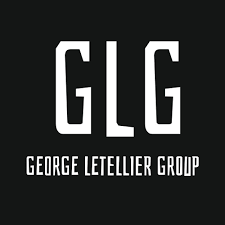
Daily Dose Of Jazz…
George Letellier was born October 11, 1957 in the United States. After attending Berklee College of Music in Boston, Massachusetts in 1975, the following year he wrote his first compositions and arrangements. He began as a pianist playing in warm-up bands for artists such as Phil Woods, Gary Burton, and Steve Swallow. Returning to Berklee in 1983, he graduated two years later with a Superior Prix in Film Music Composition.
Moving to San Francisco, California he worked as a freelance pianist in the jazz and salsa genre from 1986 until 1990. His successful session work attracted film executives and he was hired to compose music for films and corporate videos. In 1987 George served as a music editor on the Academy Award-nominated short film Liru, and in 1988 in Oakland, California, established a film production company where he worked not only as a composer but a producer.
In 1991, Letellier moved to Portugal, accepting a job offer as a professor of composition in Porto, Portugal. There he composed two ballets and was a session musician. He collaborated with saxophonist Mario Santos and formed the George Letellier Quartet which toured all across Portugal.
By 1995 he relocated to Luxembourg and began working as a music composer, session musician and taught private lessons. With the Opus 78 Big Band, he collaborated in arranging the tunes of Frank Sinatra and turning them into large philharmonic ensembles for performing.
From 1997 until 2003, he went into education serving as Director of Jazz Studies at the Esch Conservatoire, wrote three publications on jazz theory and formed the original Consabora Salsa Orchestra with Harri Jokiharra. Since 2001, Letellier has taught jazz at L’Ecole de Musique in Echternach, Luxembourg.
Pianist, composer, and educator George Letellier continues to function as a session pianist, and has performed in hundreds of jazz concerts and theatrical productions in Luxembourg, the United States, Europe, and India.
More Posts: bandleader,composer,educator,history,instrumental,jazz,music,piano
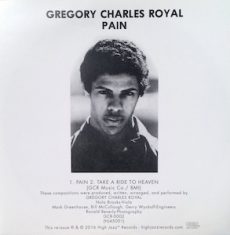
Daily Dose Of Jazz…
Gregory Charles Royal was born on October 10, 1961 IN Washington, D.C. As a student at Howard University he received the 1982 DownBeat Magazine Student Music Award for Jazz Vocal Group and Graduate College Outstanding Performance in the Jazz Instrumental Soloist Category. He graduated from Howard University with a Master of Music in Jazz Studies.
Royal went on to play with the Duke Ellington Orchestra for a decade beginning in 1989, then with Art Blakey and The Jazz Messengers, Slide Hampton and his World of Trombones, and Howard University Jazz Ensemble. He has appeared onstage as a trombonist with the Broadway shows Five Guys Named Moe and Jelly’s Last Jam.
He has written and appeared in a play God Doesn’t Mean You Get To Live Forever, which was presented at the Baruch Performing Arts Center. and at Theatre Row on 42nd Street in New York. Royal also wrote and appeared in the short film World’s Not for Me. The film won the Harlem Spotlight Best Narrative Short Award at the Harlem International Film Festival in 2016.
Trombonist, composer, writer Chuck Royal, who is the co-founder of The BeBop Channel Corporation, the former parent owner of JazzTimes, continues to pursue his career in music.
More Posts: bandleader,composer,history,instrumental,jazz,music,trombone,writer


